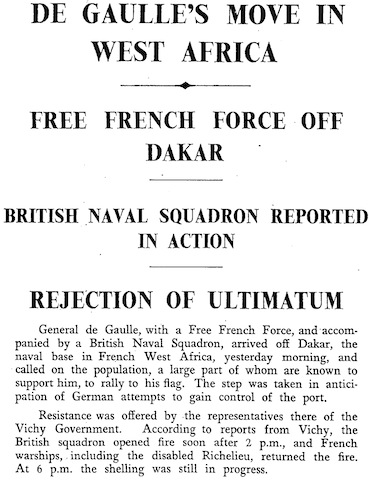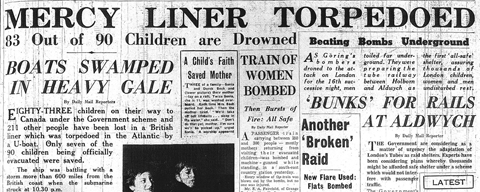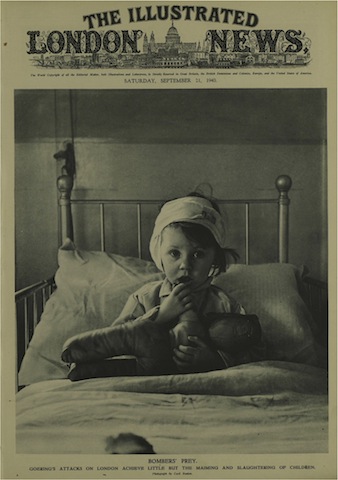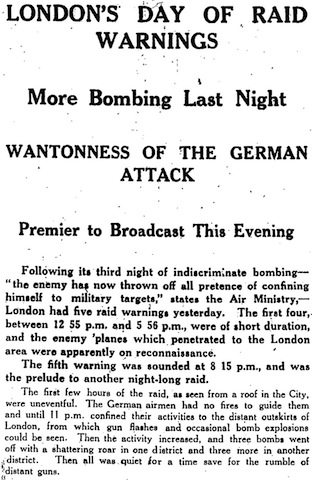Friday, 27 September 1940
The Daily Mail has some good news to splash on its front page today. (The Times dourly leads with the story of yet another record air raid on Berlin.) Another 46 survivors have been rescued from the lost liner SS City of Benares, which was reported as sunk last Monday. They drifted in the Atlantic […]









